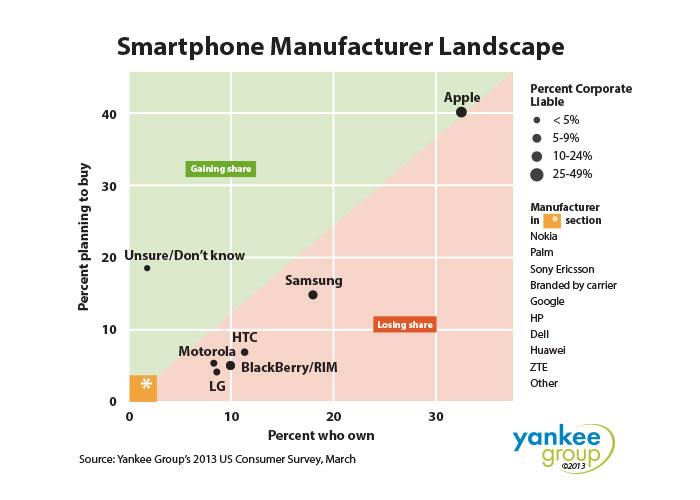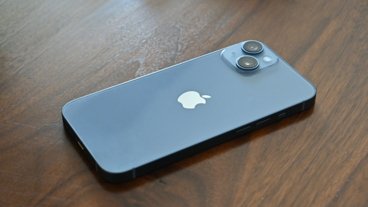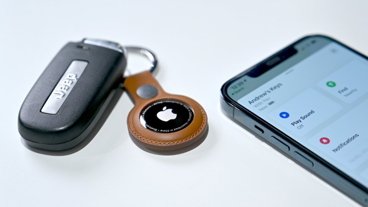Apple predicted to gain additional U.S. smartphone share over Samsung in 2013
Reiterating the lack of excitement surrounding Samsung's "Broadway-style" launch of the Galaxy S 4, Yankee Group research has stated Apple is likely to gain ownership share in U.S. smartphones this year, "rather than the other way around."
"While Samsung updated the internals and the software, the S IV is just another iteration on the Galaxy design to be slightly bigger, faster and with a few new apps," noted the firm's VP of Research Carl Howe.
"We fully expect the Galaxy S IV to be an excellent flagship phone for Samsung, but Yankee Group doesn’t see the S IV allowing Samsung to gain ground against Apple in the crucial U.S. market."
Howe's firm plotted various manufacturers' smartphone ownership share against consumers' reported intent to buy in future purchases, creating a graph (above) that depicts Apple leading in both categories, and the only smartphone manufacturer within "gaining share" territory.
Based on data collected in the Yankee Group’s March 2013 US Consumer Survey, "only about 15 percent of consumers intend to buy a Samsung phone within the next six months, while 40 percent intend to buy Apple iPhones within that period," the firm reported.
"That’s actually a slight decline from the December quarter. Further, Samsung isn’t generating the same kind of brand loyalty that Apple owners have; in that same survey, only 61 percent of Samsung owners intend to buy another Samsung as their next smartphone; that contrasts dramatically with 85 percent of Apple iPhone owners intending to buy another iPhone," Howe wrote.
"Unless Samsung works very hard to change consumers’ minds in the next six months, we actually see Apple gaining ownership share on Samsung in the U.S. in 2013 rather than the other way around."
Howe has previously noted Apple's overwhelming lead as the most favored brand among tablet buyers, with the iPad having nearly seven times the interest of its nearest competitor, Amazon's Kindle-branded devices.
 Daniel Eran Dilger
Daniel Eran Dilger











 Andrew Orr
Andrew Orr
 Sponsored Content
Sponsored Content
 Malcolm Owen
Malcolm Owen

 William Gallagher
William Gallagher

 Mike Wuerthele
Mike Wuerthele
 Christine McKee
Christine McKee







